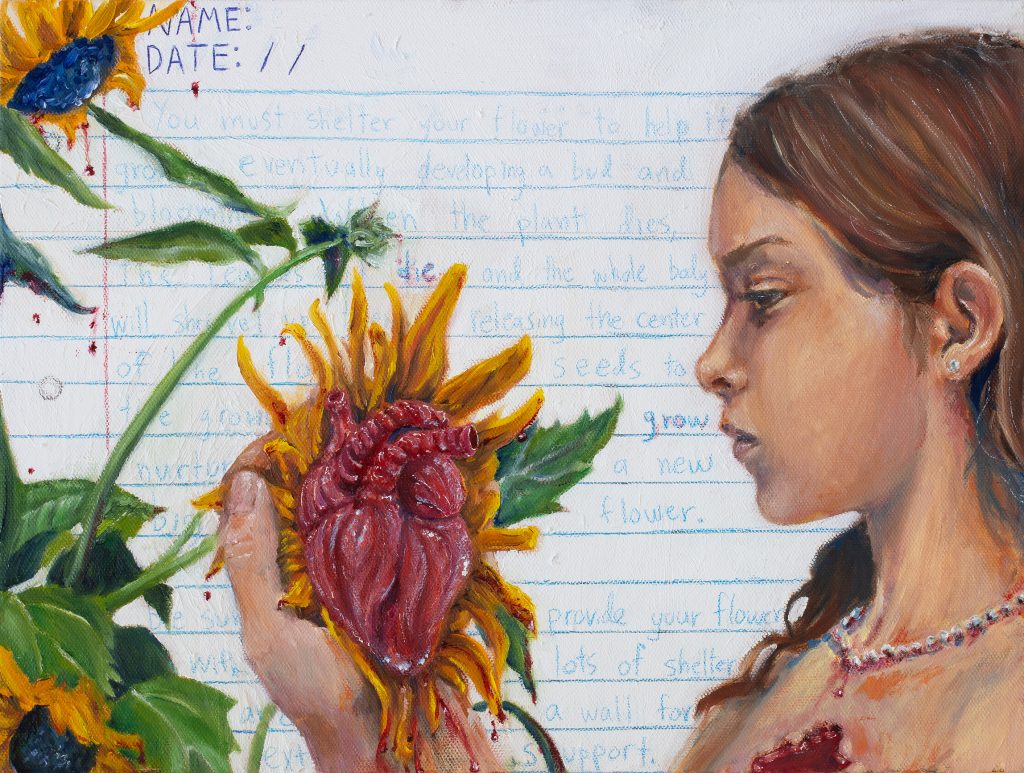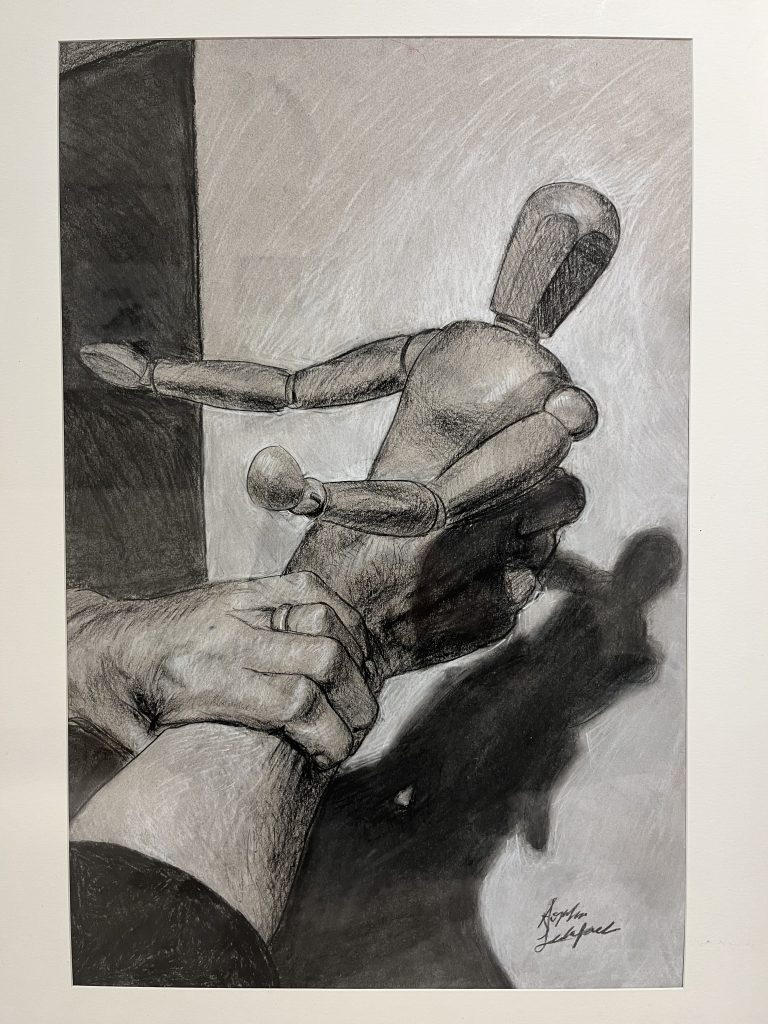
Rana Roosevelt is a digital and traditional artist in Philadelphia. She is a rising senior, and hopes to continue creating pieces in college.
Literary Journal for Young Writers
By Rana Roosevelt
By Sophia Lekeufack

Sophia Lekeufack is a first-generation high school junior based in the Washington DC Metropolitan Area. She has been published in Roi Fainéant Literary Press as well as recognized by the Scholastic Art & Writing Awards. Through the mediums of poetry and prose, Sophia amplifies not only her stories but the stories of those who came before her. If she is not lying in her bed reading a Patti Smith memoir, you can find her at the local Thai restaurant devouring some drunken noodles.
By Sally Young
I’m espresso
As the romantics say
In the way that I energize & entertain
Add some cream and you’ll be set
I’ll be sweet
It’ll be brief
But, as I’ve learned,
I’m espresso also
In the way that too much of me
Makes you jittery
A punch in the gut before I leave
No, I know you’ll hightail it
At the tail end of your high
After a bit of steam
And the hope of being held—
it gets to be enough, too much
And then I put you to sleep
Sally Young is an emerging poet studying Creative Writing at Dartmouth College. She has previously published a poetry collection titled Light Through the blinds, and hopes to keep refining her craft to better the world.
By Yufei Xian
Today’s theory
or rather, hypothesis:
one’s trajectory changes
completely every 1095 days.
Evidence:
2190 days ago,
I stepped foot upon this foreign
home. 1095 days ago,
your materialized in my life’s script,
your radiance disrupting my procedural
existence. Today,
we passed by, mere silhouettes
not a word more than “Excuse
me.” Variables:
How many cycles of 1095 days compose one’s
youth? Where will we be, after the next 1095
days?
do you still think about me too
Yufei (the word itself depicting the poetic imagery of rainfall in Chinese) is a high school student and aspiring writer living in northern California. She relishes in weaving her daytime reveries and nighttime fantasies into the assuaging tapestry of literature. When away from the pen, you can find her playing Studio Ghibli music on the flute, exploring local mountainous trails, or watching a captivating courtroom drama.
By Haynes Melchior
Red light.
we’re stopped at the intersection
of Past and Future.
time is frozen for a moment –
our lives hang suspended in a
fragile balance under a
wash of crimson light.
raindrops refract the carousel
of headlights whizzing past,
making them look like blinking
strands of Christmas lights.
music dances faintly out of the radio
and our linked hands rest
on the center console between us.
I want to capture this moment
preserve it in a jar, like an ant
perpetually suspended in
a teardrop of amber.
tuck it into a corner of the world
where time will never tarnish it.
please don’t change
please don’t forget me
please don’t let go
Green light
Haynes is a writer and editor for her high school’s literary magazine. Her work has been published by the Florida chapter of Poetry Out Loud Gets Original.
By Eartha Davis
Now, my love wakes
to a christening of
birds // his feathers
flutter face-
like // nurse
the dawn’s
receding // if I
hold him, yes,
the world
foams // bloats
under mountain
breath, snow
stubble // worships
the gentle glimpsing
of a human’s
face // what is
waking? // a chapel
of unborn // cotton eyelids
warming themselves,
seeding, a breathing
ache // & little bodies
unwrapping
lightbeds — all that
tendering, all those hands
within
hands, dreaming …
Eartha wishes to live simply, kindly, and most certainly by a river. Her work is published or forthcoming in Wildness, Rabbit, Minarets, Frozen Sea, South Florida Poetry Journal, JMWW, LEON Literary Review, Arboreal Magazine, ELJ Editions, Boats Against the Current, the Basilisk Tree, the Stirling Review, Where the Meadows Reside, Eucalyptus Lit, Uppagus, Discretionary Love, Sour Cherry Magazine, Revolute, & Eunoia Review, among others. She is a poetry editor at three journals and dreams of birds.